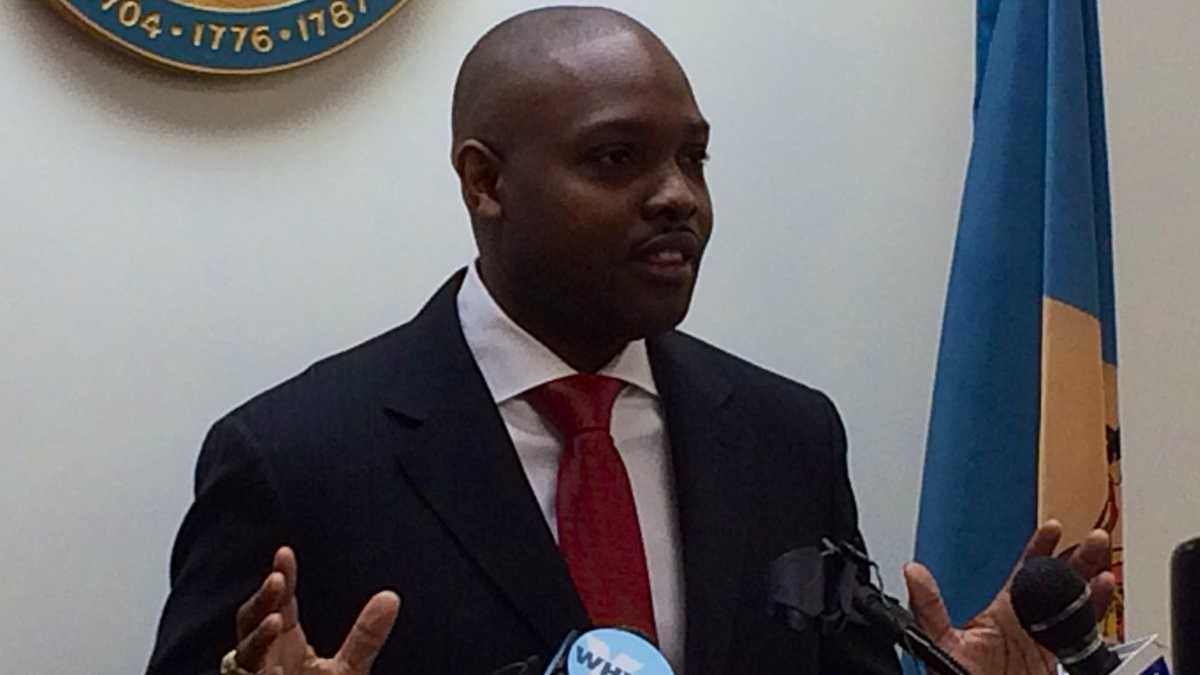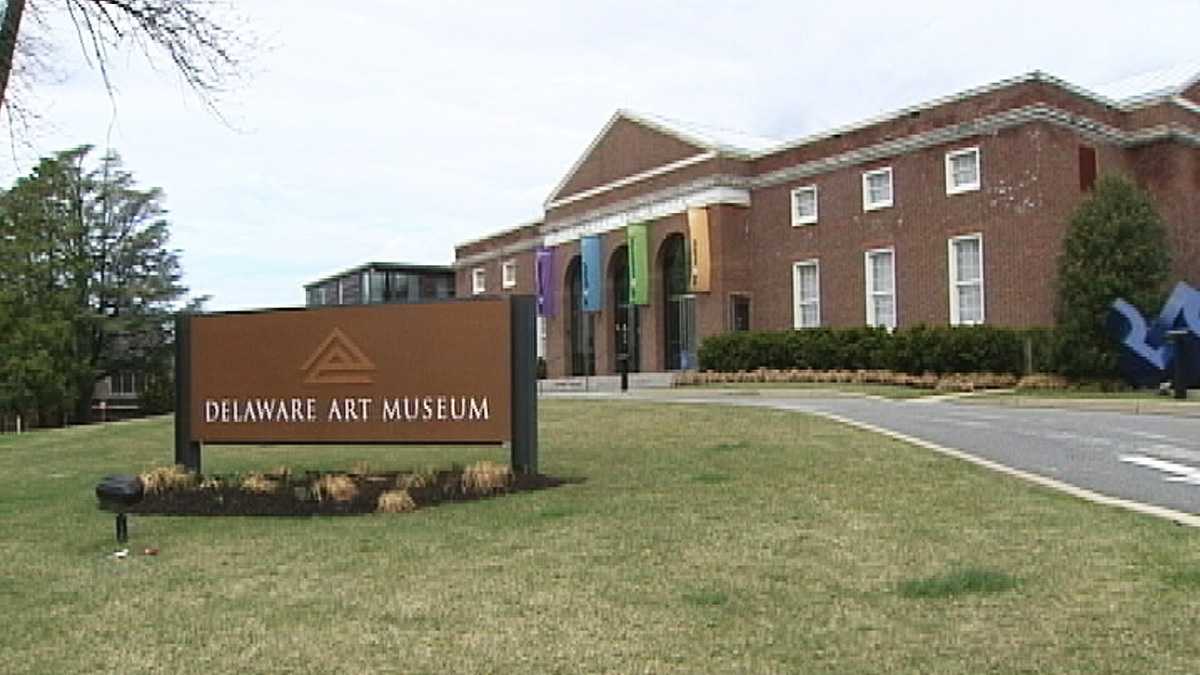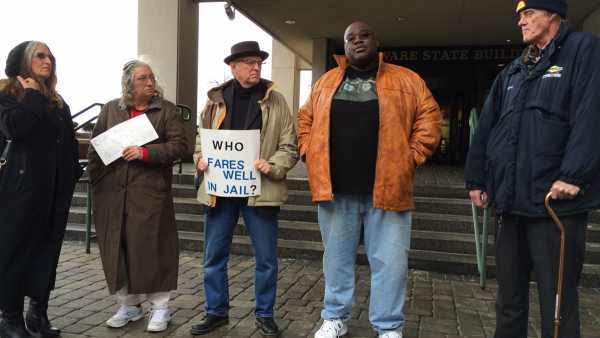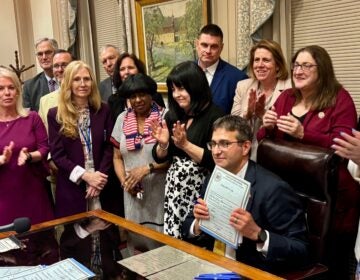Delaware’s top stories of 2014, part 1

From Beau for governor, I-495 detours, and bees, lots and lots of bees, take a look back at the top Delaware stories of 2014.
January
Delaware’s Treasurer takes on the governor
The General Assembly started the second half of their session in January with an issue that would come to dominate headlines through much of 2014: Chip Flowers.
Treasurer Flower’s battle with the Cash Management Policy Board (and by proxy, Gov. Markell) took shape as the state Senate approved a bill clarifying the role of the CMPB.
Flowers claimed the measure would strip his office of all power and make him treasurer in name only. Flowers lost his fight against the measure, a subtle foreshadowing of what became a theme for Flowers in 2014 (more on that coming in August).
Wilmington Police chief announces surprise retirement
As the city of Wilmington dealt with another year of violence, Police Chief Christine Dunning announced her retirement from the post she’d held for just over a year.
Mayor Dennis Williams had warned in late 2013 that changes would be in the works if the crime problem that’s plagued Wilmington didn’t turn around.
Williams replaced Dunning with Inspector Bobby Cummings on an interim basis in January. After what he described as a four month nationwide search for a permanent chief, Williams decided to stick with Cummings as chief in May.
February
Fisker goes to highest bidder, Del. future uncertain
The future of the Newport auto assembly plant remained murky in February as a U.S. Bankruptcy Court judge approved the sale of Fisker Automotive to Wanxiang for $149.2 million.
Wanxiang’s purchase of the electric car maker included the former GM assembly plant on Boxwood Rd. While the company expressed interest in eventually opening the Delaware plant, there is no time frame as to when that could actually happen. Alan Levin, head of Delaware’s Economic Development Office, said the state would advocate for making the Delaware plant a part of the company’s future.
The company did pledge to pay a total of $1.1 million in outstanding property and school taxes to New Castle County. There was no such pledge to repay the state for the $20 million in loans and incentives Delaware gave to Fisker to bring the company to Delaware.
Please, no more snow in Delaware
Snowmageddon? Snowpocalypse? Another one? Again? The brutal winter brought multiple snowstorms that crippled transportation and closed schools for days.
Heavy snowfall was the theme for the winter. A Valentine’s Day eve storm brought ten inches of snow that threatened flower deliveries and date plans.
The winter weather brought big headaches for school leaders juggling calendars with multiple snow days. By the end of March, the state Board of Education allowed districts to forgive up to six school days. Education Secretary Mark Murphy told schools to better plan for how to handle snow days in coming years. “I expect that should we happen to have another set of challenging weather next school year, we will not see requests for ‘forgiveness of time,'” Murphy said.
March
Stewardship and the Delaware Art Museum
The Delaware Art Museum’s decision to auction off pieces from its collection to pay off its $19.8 million in debt brought a flood of criticism and consequences. The decision to sell art was made after all other alternatives were exhausted, according to museum CEO Mike Miller.
The first work, “Isabella and the Pot of Basil” by William Holman Hunt, was sold at auction for $4.8 million. The next day, the Association of Art Museum Directors sanctioned the museum and asked members to suspend any loans of works to the Delaware Art Museum and to halt any collaborative efforts with the museum. The museum also lost its accreditation from the American Alliance of Museums.
By the end of September, the museum’s debts had been paid off with the sale of Alexander Calder’s “Black Crescent” and Winslow Homer’s “Milking Time.” Those sales and the possible sale of a fourth work, yet to be named, will also help replenish the museum’s investment portfolio.
Annual fee to clean Delaware’s water
Governor Markell unveiled plans to make Delaware’s waterways cleaner in early March. The proposal included an annual $45 fee that would be added to county property tax bills. Markell called the state of Delaware’s waterways “unacceptable” and “embarrassing.” Currently, 94 percent of the state’s rivers don’t support healthy fish and aquatic life and 86 percent are not safe for swimming.
The water fee was to be leveraged with the existing Clean Water and Drinking Water Revolving Funds to implement nearly a billion dollars in infrastructure improvements.
Lawmakers in Dover balked at both the clean water fee and Markell’s call for a ten cent increase in the gas tax. Neither proposal was approved when the 2014 General Assembly session ended in June.
April
Beau Biden running for governor
Beau Biden surprised many political observers when he announced in April that he would not run for reelection as Attorney General in November so that he could prepare for his candidacy for governor in 2016.
True to form for 2014, Biden stayed away from the cameras and made the announcement in a letter to supporters rather than in a press conference.
The announcement also renewed questions about Biden’s health. In 2013, he underwent an undisclosed medical procedure at the University of Texas MD Anderson Cancer Center. No specifics were given between then and now about what Biden suffered from or what the procedure entailed.
The announcement came just a few months before the November election and left Democrats scrambling for an AG candidate. Lt. Gov. Matt Denn eventually won the party’s nomination and the five-way general election contest. Denn will his post as Lieutenant Governor, leaving the position vacant for the final two year of his term.
Protest against judge in du Pont heir case
A lenient sentence in a 2008 child rape case drew protests in Wilmington in April. The ruling by Judge Jan Jurden resurfaced after the child’s mother filed a lawsuit against her ex-husband, Robert Richards, IV.
Richards, a du Pont heir, was convicted in ’08, but Judge Jurden reduced his eight year prison sentence to probation saying he “will not fare well” behind bars. That statement drew protests and some national attention from those who felt Richards wealthy status insulated him from a more appropriate sentence.
Attorney General Biden was one of many who came to Jurden’s defense, calling her “an outstanding jurist.” In December, Gov. Markell nominated Jurden to be the first woman to serve as president judge of the Delaware Superior Court. Jurden was confirmed by the state Senate.
May
AstraZeneca fends off Pfizer bid
For more than 2,000 Delaware workers at AstraZeneca, May brought some temporary relief. AZ successfully fended off Pfizer’s takeover.
The merger would have created the world’s largest drug company, but sparked worries in Delaware, which is home to AZ’s U.S. headquarters. New York-based Pfizer had made four offers early in the year, but AZ’s board decided that the final offer of more than $100 billion in cash and stocks undervalued the company.
That rejection stabilized the company’s future in Delaware, but possibly only in the short term. New Castle County Executive Tom Gordon said the attempted purchase signals more stability in coming years.
Escaped bees not likely to inundate Delaware
As many as 20 million bees were released near Newark when a tractor-trailer overturned on an on-ramp to I-95 in late May. The truck was carrying 460 bee hives from Florida to Maine. The truck driver and two passengers were stung 50 to 100 times at the crash scene.
State Police warned drivers along I-95 to be on the lookout for transient swarms of bees and to drive through the area with their windows rolled up. One bee expert from the University of Delaware called the scene of millions of angry, agitated bees upsetting. “It was traumatizing, honestly.”
June
I-495 bridge to be closed for weeks, months
Delaware travelers learned the importance of I-495 in June when the highway was closed after serious problems were discovered with a bridge over the Christina River.
The bridge was found to be leaning, a problem that was eventually blamed on piles of dirt that had been placed alongside the bridge supports. The resulting detours caused major delays on I-95 and in the city of Wilmington, as many drivers on 495 had to go through the city to get around the closure.
The bridge finally reopened in both directions in late August, ahead of DelDOT’s self-imposed Labor Day deadline.
Firefly wraps up successful 2014 festival
More than 80,000 music fans descended on Dover for the third annual Firefly Festival in late June. Traffic woes that had delayed entry for some on the first day of the event in earlier years were mostly eliminated by the addition of a fourth day of music. That extra day spread out arrivals at the festival and created a much smoother traffic flow.
A University of Delaware study found that Firefly generated $68 million for the state economy. Following this year’s event Firefly organizers signed a deal with the company that produces the Coachella music festival in California. They also announced plans for a second music festival the week after Firefly 2015, featuring some of the top country music acts in the nation.
You can continue reading our recap here: Delaware’s top stories of 2014, part 2.
WHYY is your source for fact-based, in-depth journalism and information. As a nonprofit organization, we rely on financial support from readers like you. Please give today.

















